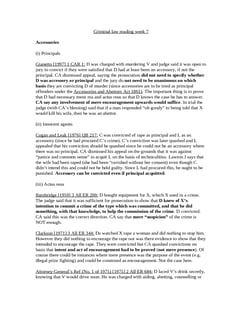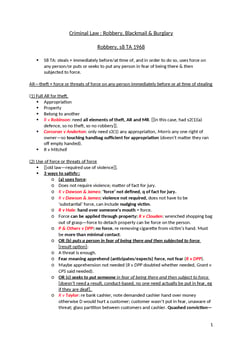R v Kingston [1994] Crim L R 846
Judgement for the case R v Kingston
Table Of Contents
KEY POINTS
Intoxication can be used as a defense in criminal law cases. Involuntary intoxication is recognized as a valid defense in some jurisdictions. Intoxication caused by the surreptitious administration of drugs or drinks, may be considered a defense.
The intent to commit the offense was induced involuntarily through secretly administered drugs or intoxication amounting to criminal intent.
FACTS
The defendant was with paedophiliac homosexual tendencies whom former business associates blackmailed.
They arranged for another man, P, to record the defendant engaging in compromising activities with a boy.
P lured a 15-year-old boy to his flat, drugged him, and invited the defendant to sexually abuse him while unconscious.
The defendant claimed that P had also drugged him and that he had no recollection of the events. The judge ruled that if the defendant was influenced by the drugs and still intended to commit the assault, he could be convicted. However, upon appeal, the Court of Appeal quashed the conviction, stating that if involuntary intoxication caused a person to form an intent they would not otherwise have formed, it negated any criminal intent.
The Crown then appealed the decision to the House of Lords.
JUDGEMENT
The absence of moral fault did not serve as a defense. Simply lacking moral fault was not enough to negate the mental element of the offense.
Losing self-control due to the actions of a third party generally didn't count as a defense but could be considered during sentencing.
Involuntary intoxication or disinhibition weren't defenses unless they led to automatism or temporary insanity. It wasn't a defense if the defendant intended to commit the offense, even if it arose from circumstances, they weren't responsible for.
However, the offense wouldn't be established if the defendant were so intoxicated that they couldn't form intent.
The jury determined that the defendant intended to commit the indecent assault despite being influenced by drugs, leading to a conviction. The Crown's appeal was allowed, and the case was returned to the Court of Appeal for further consideration.
COMMENTARY
The Director of Public Prosecutions appealed with leave of the Appeal. The committee granted the decision of the Court of Appeal, allowing the appeal of the respondent of indecent C assault on a male person for which he was sentenced to five years imprisonment.
Having allowed the appeal against conviction on material misdirection, the Court of Appeal did not consider the other grounds of appeal or the appeal against sentence.
The facts are set out in the opinion of Lord Mustill.
ORIGINAL ANALYSIS
P drugged an underage boy at his flat and invited K for the purpose of raping the boy.
K was also drugged by P and argued in defence that his intention to rape was caused by intoxication by a third party.
He was convicted by a judge, the CA allowed his appeal and the HL allowed the prosecution appeal, stating that K formed the intention to rape before being drugged, therefore intoxication by a third party was irrelevant.
However the HL say that third party intoxication never negatives a mens rea, REGARDLESS of whether the intention existed prior to intoxication.
This seems unfair where the intoxication is not by consent (e.g. spiking drinks), though in this case the jury did not believe that the drugs were taken involuntarily.
For Further Study on R v Kingston

Criminal Law notes fully updated for recent exams at Oxford and Cambrid...
Need instant answers? Our AI exam tutor is here to help.
Ask questions 🙋 Get answers 📔 It's simple 👁️👄👁️
Our AI is educated by the highest scoring students across all subjects and schools. Join hundreds of your peers today.
Get StartedRelated Product Samples
These product samples contain the same concepts we cover in this case.
| GDL Criminal Law | Defences Notes (21 pages) |
| Criminal Law | Intoxication Notes (3 pages) |
| GDL Criminal Law | Intoxication Notes (5 pages) |

 Since 2010, Oxbridge Notes has been a trusted education marketplace, supplying high-quality materials from top achievers at universities like Oxford, Cambridge, LSE, Harvard, and Yale.
Since 2010, Oxbridge Notes has been a trusted education marketplace, supplying high-quality materials from top achievers at universities like Oxford, Cambridge, LSE, Harvard, and Yale.